Marine Industry
The marine industry utilizes a wide range of pumps for applications ranging from the handling of seawater to fuels, fish and sludges.
Due to the variation of pumps and application in which they are used it is important any pump selection considers all the variables and has the required experience.
We work with vessel owners, ship repairers, operators and management companies in the following ways: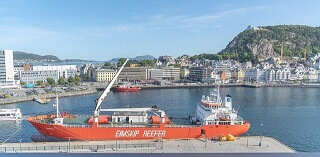
Experienced technical sales engineers
We have over 20 years experiences within the marine industry and consequently understand the requires of each pump application, benefits of particular pump types and help troubleshoot any issues why may currently be arising such as high pump wear, frequent spares replacement, cavitation, or pump downtime.
Certification & Type Approval
Pumps are type-approved according to required applications onboard vessel and for insurance purposes. We also provide attended witness tests with any marine classification society.
Materials
Our main material for use with seawater is bronze due to its resilience in seawater, and quick availability. We offer various grades of bronze depending on pump duty and application. We can also supply pumps in Duplex Stainless Steel for aggressive waters and sludge, and cast iron or ductile iron for use with fuels.
Lead Times
We can supply pumps from stock, with models produced quickly through a fast track service ensuring turnaround times to meet your vessels docking requirements. If not from stock our lead times can vary between 4-8 weeks depending on the size of pump and performance.
Designs
We have designed our range of pumps with you in mind. Pumps can be space-saving design through our wide range of vertical pumps, some of which are close-coupled which are also available in horizontal execution. We have models designed for tight spaces where bulkhead penetration is the only viable option.
Our designs of pumps also enable easy maintenance by a spacer coupling to allow maintenance in place without disconnection of the motor, and back pull out design meaning the pump can remain connected to pipework without dismantling. Magnetic coupling drives are also available to allow zero possibility of leakage and less frequent maintenance.
Our pump designs are of a modular design meaning different models share parts enabling spare parts stock to be interchangeable across many pumps ensuring stock is kept to a minimum onboard but also has a wide range of use.
Voltages and Frequencies
We understand when operating worldwide that 50hz / 60hz can be needed onboard vessels or offshore structures. We can accommodate almost all voltage and frequency combinations and are not restricted.
Worldwide Shipment
We have the ability to ship worldwide complete with any custom documentation including a certificate of conformity, and material certifications to 3.1, 3.2. All our pumps are packed to ISPM15 as standard enabling worldwide shipment without issue. 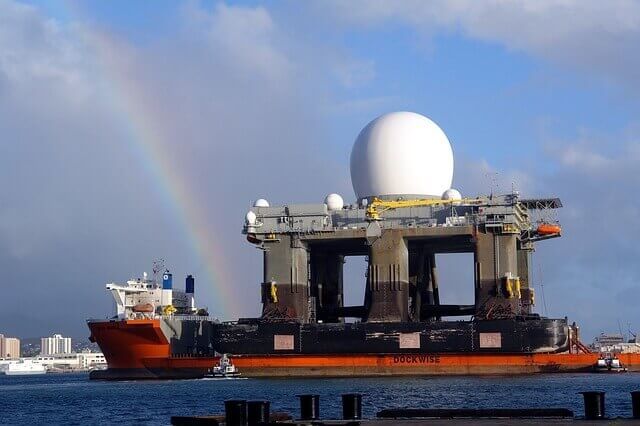
Applications
The marine processes we accommodate include:
Ballast – Loading and discharge of seawater into ballast tanks during loading and discharge of cargo.
Bilge – Emptying of bilge waters containing water, oil and other contaminants into oily water separator before discharge overboard
Boiler Feed –Supply of pressurized water for use within a boiler
Bunkering – for the handling of bulk loads of cargo such as fuels
Circulation – seawater circulation within cooling pipework
Cooling – cooling of machineries such as engines, winches, transformers and electronic equipment
Deck Wash – for the cleaning of the deck with fresh water to remove contaminants and seawater
Firefighting – supply of pressurized seawater for use within mist and sprinkler systems
General Service – pumps for the handling of seawater through various applications including air conditioning, seawater bearing lubrication,
Hydrophore – Pressure booster sets for the onboard supply of domestic hot and cold water
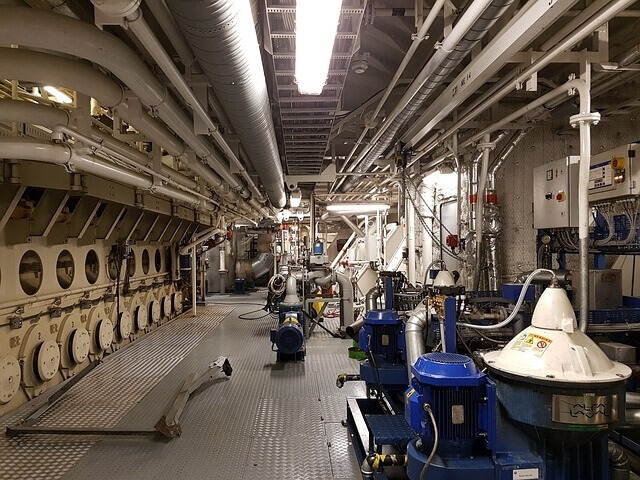
Lubrication – Lubrication of equipment such as winches, chains, gearboxes, and other rotating machinery
Marine Fuel Transfer – Transfer of fuels such as marine diesel oil (MDO) Low Sulphur gas oil (LSGO), Heavy Fuel Oil (HF0)
Mud Transfer – Transfer of mud during drilling for tailings recovery and drill lubrication
Scrubber pumps – Handling of seawater, acids and alkalis in the treatment of emissions discharged from vessels.
Seawater injection – Injection of the sweater into wells to improve the recovery rate of oil from deep wells
Sewage transfer – Transfer of sewage from toilets to main tank or sewage treatment unit
Sludge pumps – handling of sludge from bilge, oily water separators, tank slops and scrubber systems
Water Maker -supply of water at high pressure for reverse osmosis
We accommodate all vessel types within the marine industry such as:
Floating Production Storage and Offloading Vessels (FPSO’S) - A vessel designed for the processing of hydrocarbons.
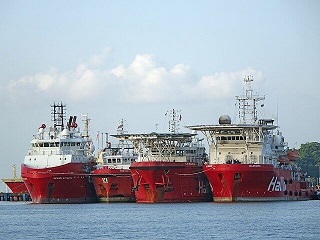
Semi submersibles / Submersible - A rig designed to operate in deep water with extensions allowing the operational part to be above water
Jackups - Jackup rigs do not have legs permanently attached to the seafloor, and are lowered for drilling then raised when moved to another location.
Drillships - Where drilling equipment is located in the centre of a ship above a moon pool. A moon pool is an opening within the vessel hull allowing drilling equipment, tools, divers, ROVs and other instruments to access water below with protection from the elements and sides of the vessel
Submarines - Submersible ship
ROVS - Remotely Operated Vehicles used for underwater exploration, inspection, repair and maintenance.
Heavy Lift - Pipe laying, cable laying, offshore windfarm installation
General Service - Used for a variety of roles such as windfarm support.
Diving Support - A vessel used as a base for deep-sea divers typically containing ROVS, moonpool and hyperbaric chamber.
Storage and Offloading Buoys
A mooring buoy designed for tankers to load and offload fluids without docking. Products offloaded can be pumped ashore saving on sailing time
Emergency Response and Rescue Vessel
A vessel designed for operating at short notice to save and preserve life at sea. They attend offshore installations and secure recovery and rescue of any personnel, contain oil spills and act as a reserve radio relay station. Such vessels typically have lifeboats for an immediate response, nets for recovery of personnel, and the required medical equipment for the treatment of any personnel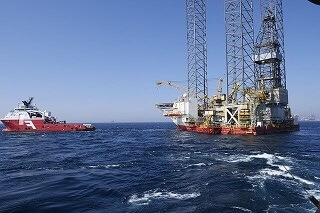
Platform Supply
To supply oil platforms with bulk fluids which are consumed onboard platforms such as diesel, cement and drilling mud. Cargo tanks are used to carry such fluids and after offloading platforms, with fluids, they often handle waste fluids such as chemicals, and tailings for recycling. They also provide support in case of fire, and on standby in case of oil spillage having the necessary equipment onboard to contain and clean any spillage. Platform supply vessels also provide crew to the required area.
Tankers
Specialist vessels for carrying containers including Livestock Carriers, Chemical Tankers, Liquid Natural Gas (LNG) Carriers, Liquid Hydrogen Carriers, Dry Bulk & Bulk cargo which is unpackaged large quantities of cargo such as grains, coal, ore, and scrap.
Reefer Vessels
These are used for the carrying of perishable goods which require temperature-controlled shipment such as fruit, vegetables, although such cargo can also be carried in refrigerated containers onboard container ships.
Tugs
Used to pull or push vessels, barges of cargo which is unable to manoeuvre under its own ability
Ferries
For the transfer of passengers and vehicles RORO - Roll-On / Roll-Off.
Fishing vessels
Vessels used for commercial fishing such as trawlers, seiners which catch fish with nets near the surface such as pelagic type fish, longliners which catch fish via hooks and lines, clippers which fish using live bait via poles and lines. Crabbers which seek crustaceans via traps, and drifters which use drift nets. Factory ships catch fish, process and preserve at sea until docking.





